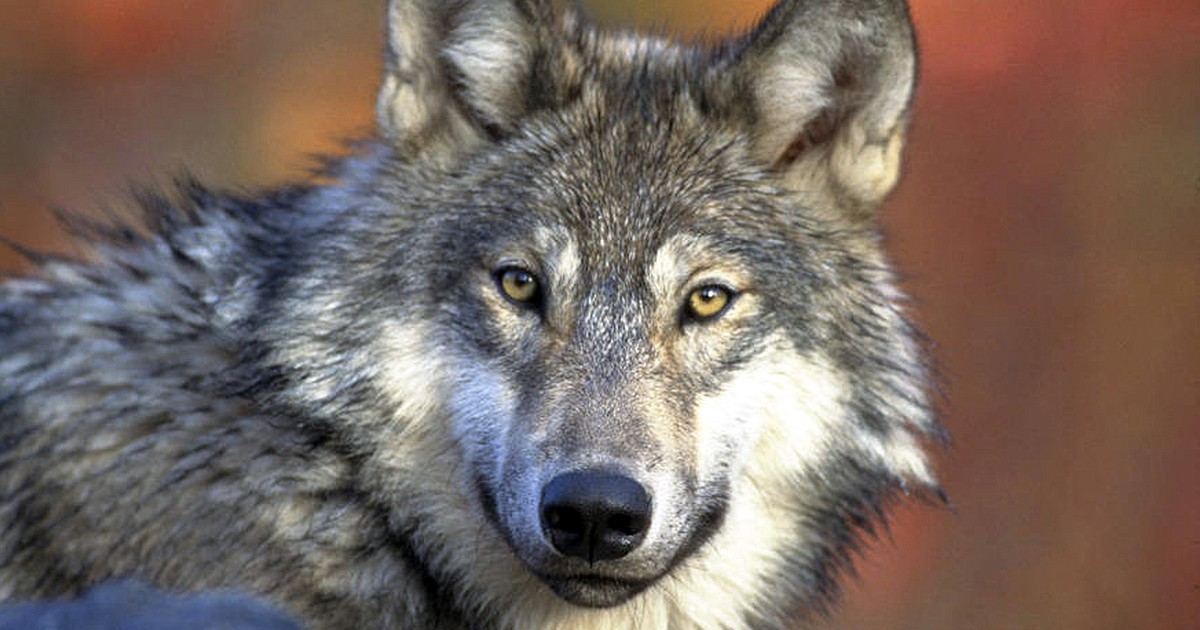Federal wildlife officials erred in a recent decision to deny federal protections for gray wolves in the western U.S., according to a ruling issued by a district court in Missoula on Tuesday.
U.S. District Court Judge Donald Molloy sided with the plaintiffs and partially vacated a finding that the U.S. Fish and Wildlife Service issued in February 2024 stating that gray wolves did not meet the definition of an endangered or threatened species. Federal wildlife officials must now reconsider that decision, providing an opportunity for the canids to once again receive federal protections.
“With this court ruling comes the hope of true recovery for wolves across the West,” stated Collette Adkins, carnivore conservation director at the Center for Biological Diversity.
The nonprofit was one of 20 conservation and animal welfare organizations that challenged the 2024 finding, arguing that the U.S. Fish and Wildlife Service failed to use “the best available science” when it came to its decision. The suits were later consolidated into a single case that additionally included a coalition of hunting organizations, the state of Montana and Montana Fish, Wildlife and Parks as defendants.
In his final ruling, Molloy found that the U.S. Fish and Wildlife Service “made numerous unfounded assumptions” when considering the current and future status of wolves in Idaho, Montana, Wyoming and parts of Washington and Oregon.
Among the alleged oversights was the presumption that state governments would provide adequate protections for the gray wolf. Plaintiffs successfully argued that the politics surrounding wolves clouded the ability of states to appropriately manage the creatures.
“The [U.S. Fish and Wildlife] Service did not consider how these negative public attitudes, undisputedly expressed in the legislative bodies governing Montana and Idaho, would impact the states’ commitments to maintain minimum wolf populations,” wrote Molloy. “This further undermines the agency’s reliance on these commitments to find that the state regulations are adequate to protect the gray wolf in the future.”
Federal officials also failed to consider changes in the historic range of gray wolves, rates of illegal take and superadditive impacts from unexpected population reductions when issuing the 2024 finding.
“With Montana set to approve a 500 wolf kill quota at the end of August, this decision could not have come at a better time” stated Patrick Kelly, the Montana director of plaintiff Western Watersheds Project. “Wolves may now have a real shot at meaningful recovery.”
The Montana Fish and Wildlife Commission is set to vote on the proposed quota and other wolf hunting and trapping regulations on Aug. 13. Other changes under consideration include an increase in the individual bag limit for both hunters and trappers and relaxed licensing requirements for wolf hunters.
Tuesday’s verdict likely won’t affect the outcome of that vote, nor does it automatically reinstate federal protections for wolves in the Northern Rockies. But Kelly said the ruling “represents a hopeful step” toward that goal in a joint statement released by several of the lawsuit’s plaintiffs.
The U.S. Fish and Wildlife Service has 60 days to file an appeal in the case. If Molloy’s decision is upheld, the agency will be required to issue a new finding that aligns with federal endangered species regulations and the best available science.
Reporter Hailey Smalley can be reached at 758-4433 or hsmalley@dailyinterlake.com.

